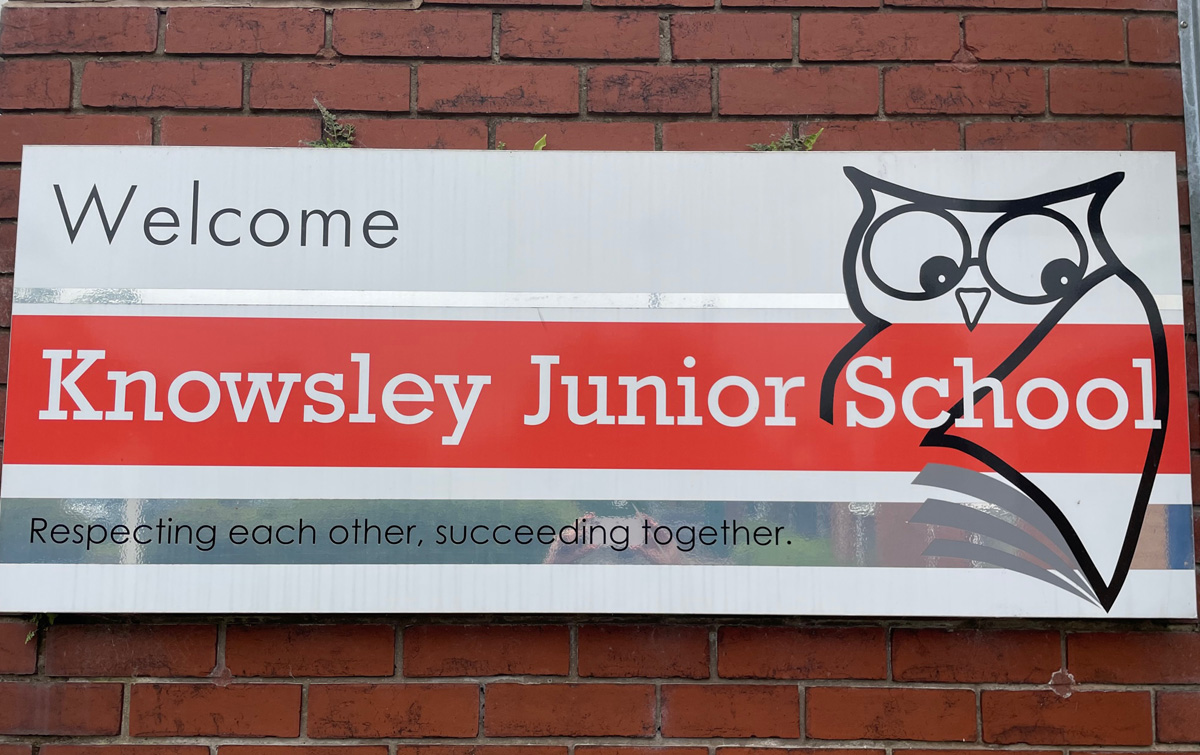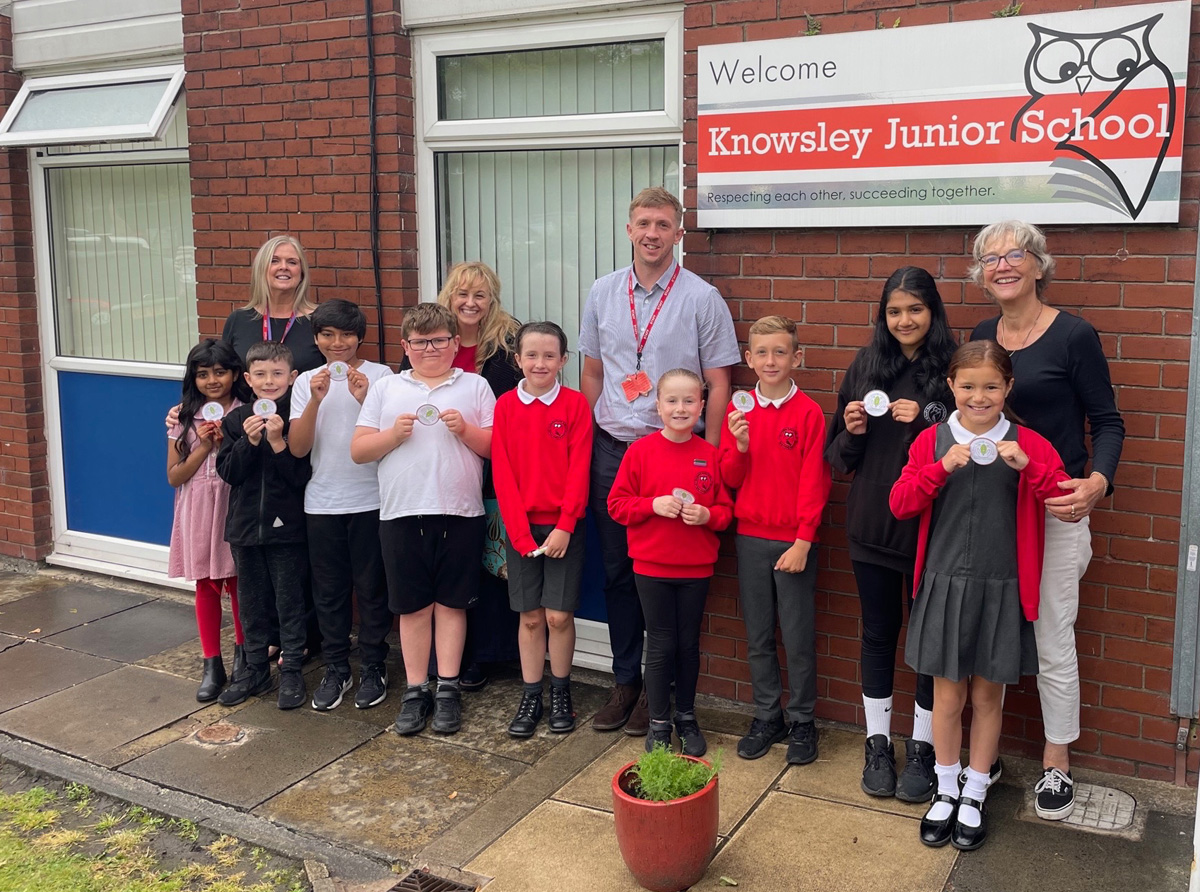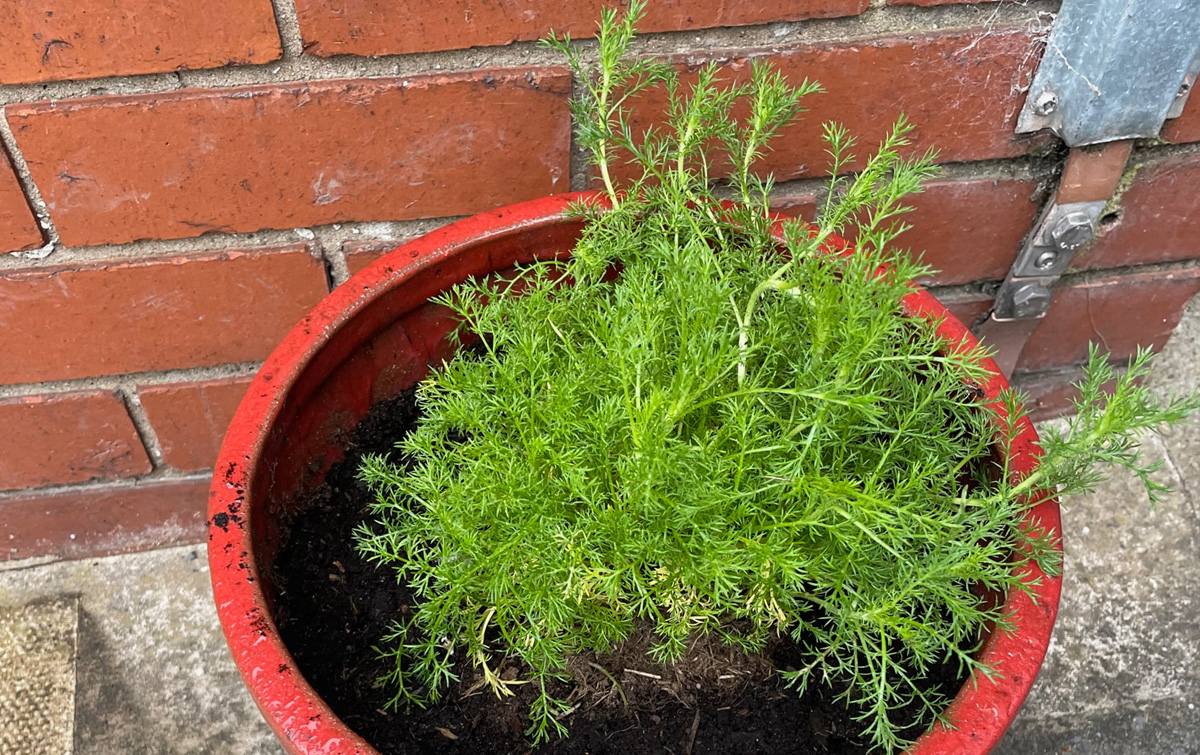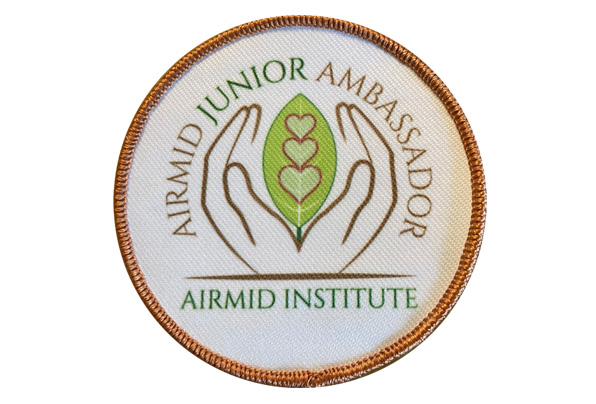July 31, 2023
Junior Ambassador Summer Update
This summer, Dr. Kelly Ablard was honored to visit Knowsley Junior School in Oldham, UK with Dr. Jacqui Stringer, Airmid Institute’s Ambassador of the UK, and Founder of the Junior Airmid Ambassador Program.
Knowsley Junior School was the first school to be part of the Junior Airmid Ambassador Program and entrusted their Eco Squad to run the project and plant the seeds of the fragile medicinal and aromatic plant, Roman chamomile (Chamaemelum nobile). They were extremely successful!

Knowsley Junior School, Oldham UK
Together, Jacqui and Kelly were given a tour of all the beautiful places on the school campus where the Eco Squad Junior Airmid Ambassadors chose to plant and nurture Roman chamomile. They are so knowledgeable and protective of their beautiful aromatic plant!
The first Junior Airmid Ambassadors ever were presented with their hard earned Junior Airmid Ambassador badges at the school assembly. They were so proud of what they accomplished, and will no doubt inspire other children to follow suit through the love and protection they continue to show Nature.

The EcoSquad (Junior Airmid Ambassadors) with their hard-earned badges! From l to r: Ruby, Miss Payne, George, Iyaad, Conner, Dr. Kelly Ablard, Bella, Mr. Langhorn, Evie, Henry, Jannat, Dr. Jacqui String, and Isabella.
The EcoSquad (Junior Airmid Ambassadors) and teachers shared with us about their experience taking part in the Junior Airmid Ambassador Program.
I loved planting chamomile. I would love to do it every year!
The Roman chamomile is a great addition to this school because it is a lovely plant and it has healing properties. Roman chamomiles need love and water because they’re almost extinct. We must protect Roman chamomile as it would be such a shame for something that has been around for so long to be gone forever. It has been amazing to be part of something that could make a difference in the world.
I have really enjoyed having the Roman chamomile in the school and having the opportunity to plant it. I have learnt about it being in danger and how it is useful in medicine.
My favourite part of the Airmid Programme was planting chamomile at the front gate, so people can see it when they visit school.
Our work contributes hugely to protecting chamomile because we are the first school to be part of the ‘Airmid Programme’ and we help show the world that Roman chamomile is not a weed and should be protected because it has huge benefits to our health. It was a great experience and I highly recommend that other people should help contribute to protecting Roman chamomile.
It was great to welcome Dr Ablard and Dr Stringer to Knowsley to see our Roman chamomile. Long may the partnership continue!
Being part of the Airmid Programme has been a pleasure. Knowing that we’re doing our bit to help with research to help cure illnesses is something I feel very passionately about.

Pot of Roman chamomile for all to see!
Airmid Institute is truly thankful for Dr. Jacqui Stringer, the dedicated staff at Knowsley Junior School, and these beautiful Junior Ambassadors for reminding us that our future is in good hands.
June 14, 2023
New Airmid Junior Ambassador Badges

Dr. Kelly Ablard and Dr. Jacqui Stringer will be presenting the first ever Airmid Junior Ambassadors with their badges on June 30th at Knowsley School located in North West England! Children’s educational programs that support opportunities for them to connect to Nature has been a focus of Airmid’s since our inception, and further inspired by 2021 The Dasgupta Review, which places a heavy emphasis on children.
“Every child in every country is owed the teaching of natural history, to be introduced to the awe and wonder of the natural world, and to appreciate how it contributes to our lives. Establishing the natural world within educational policy would contribute to countering the shifting baseline, whereby we progressively redefine ourselves as inhabitants of an emptying world and believe that what we see is how it is and how it will continue to be. This shifting baseline has been termed the ‘extinction of experience’ (Pyle, 1993).
Achieving tangible effects, however, is not straightforward. The development and design of environmental education programmes can be directed to overcome the problems. In their wide-ranging survey documenting direct impacts of environmental education, Ardoin, Bowers, and Gaillard (2020) have suggested that focusing on local issues or locally relevant dimensions of broader issues, such as collaborating with scientists, resource managers and community organisations, is of enormous help. Our emphasis in the Review on the role of communities and civil societies in the economics of biodiversity is consonant with that line of thinking.542
But even that would not be enough. Connecting with Nature needs to be woven throughout our lives. The connection has been found to decline from childhood to an overall low in the mid-teens, followed by a steady rise that reaches a plateau lasting the rest of one’s life (Hughes et al. 2019). It is a cruel irony that we surround children with pictures and toys of animals and plants, only to focus subsequently on more conceptual knowledge, marginalising environmental education relative to the wider curriculum.”
The Airmid Junior Ambassador program, founded and currently managed by Airmid Ambassador of the U.K. Dr. Stringer was developed to address these challenges. Educational programs as part of Airmid Institute’s work are also taking root in Taiwan.


